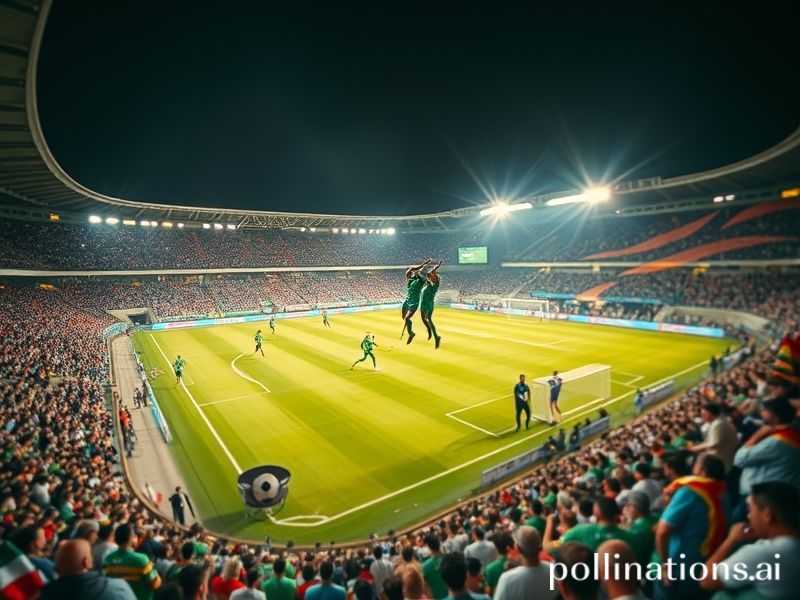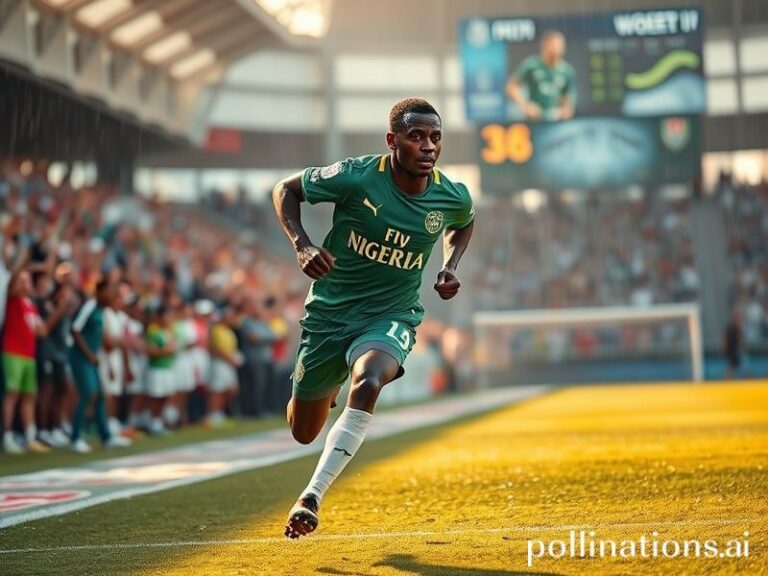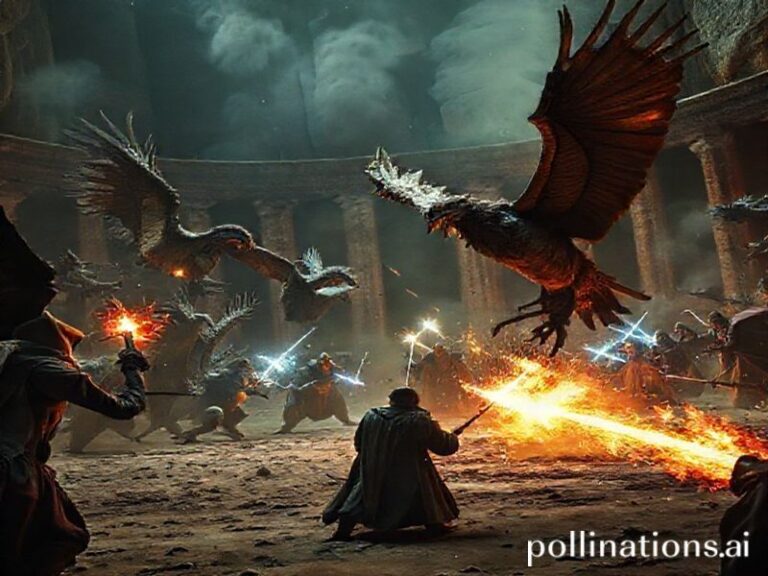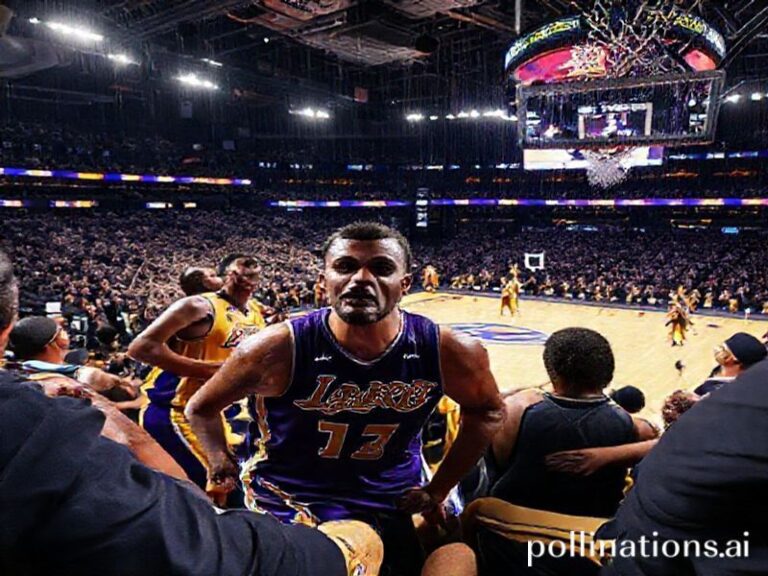Riyadh Derby: How Al-Ahli vs Al-Hilal Became the World’s Most Expensive Therapy Session
Al-Ahli vs. Al-Hilal: When Riyadh’s Derby Becomes a Mirror for the World’s Nastiest Family Feuds
by Our Correspondent, filing from a hotel bar that still smells of 1979
Riyadh, Tuesday night. Outside the King Fahd Stadium the air tastes of sand, engine oil, and the faint metallic tang of geopolitical anxiety. Inside, Al-Ahli Saudi and Al-Hilal are about to play what the local press insists on calling “The Mother of All Battles,” a phrase that would make Homer reach for his lawyer. To the neutral, it is merely another Saudi Pro League fixture; to the rest of us—jet-lagged foreign hacks, hedge-fund vultures scouting soft-power investments, and the occasional European superstar collecting a pension in cleats—it is a convenient microcosm of every grudge match currently poisoning the planet.
Let’s begin with the obvious: Al-Hilal are the blue-bloods, the club of ministers, princes, and that one uncle who still quotes the 1996 Asian Club Championship like scripture. Their trophy cabinet is so overstuffed the hinges have applied for asylum. Al-Ahli, meanwhile, are the self-styled “people’s club,” which in the Gulf means they merely have fewer gold-plated toilet brushes in the executive washroom. Both sets of fans have imported every toxic chant from the terraces of Manchester, Cairo, and Buenos Aires, proving that globalization’s greatest triumph is the universal spread of creative profanity.
The match itself is a 3-2 Al-Hilal victory—inevitable, like death, taxes, or another Marvel sequel. Yet the score is the least interesting detail. Far more instructive is the galaxy of subplots orbiting the pitch: the Qatari beIN Sports crew broadcasting under protest because someone in Doha still hasn’t forgiven the 2017 blockade; the American sports-consultancy firm live-tracking “fan-engagement KPIs” with the joyless precision of an IRS audit; and the Chinese camera drones swooping overhead, no doubt feeding facial-recognition data to some server farm in Shenzhen that already knows your cholesterol level.
Consider the players: Al-Hilal’s marquee summer signing is a 34-year-old Brazilian who once won everything except a quiet retirement; Al-Ahli counter with a Moroccan striker whose Instagram grid is a masterclass in existential dread—sunset selfies captioned by Kierkegaard quotes. Both men earn more per week than the average UN peacekeeper sees in a year, a statistic that would be depressing if it weren’t so hilariously on-brand for the 21st century.
The referee, a Sardinian imported presumably because no local official wanted to be the protagonist in tomorrow’s trending hashtag, awards a soft penalty that VAR reviews for roughly the time it takes to brew Turkish coffee. The decision stands; the stadium erupts; Twitter melts faster than Arctic permafrost. Within minutes, the clip is dissected by pundits from Lagos to Lahore, each framing the foul as proof of their preferred conspiracy: Western media bias, Gulf monarchical decadence, or the inescapable fact that God, too, bets on Al-Hilal.
What does any of this matter beyond the city limits? Plenty. Saudi Arabia is currently shopping for soft power the way teenagers shop for sneakers—loudly, conspicuously, and with daddy’s credit card. The league is one pillar of Vision 2030, Crown Prince Mohammed bin Salman’s audacious plan to diversify the economy beyond oil, boredom, and weaponized patriarchy. Every foreign star lured by petrodollars is a walking press release; every derby broadcast to 190 countries is a tourism advertisement wrapped in 90 minutes of soap opera. The West watches, half-horrified, half-envious, like a bankrupt aristocrat peeking through the gates at the nouveau riche.
Meanwhile, the moral accountants in London and Washington oscillate between boycotts and box-office envy. How dare they sportswash human-rights records! Also, could we maybe get Messi on a summer loan? The hypocrisy is so symmetrical it could be framed and hung in the Louvre—right next to the newly acquired Da Vinci that Qatar just loaned to Paris for, well, soft-power reasons.
Back in Riyadh, the final whistle blows. Al-Hilal fans set off fireworks that could be mistaken for anti-aircraft flares; Al-Ahli supporters file out muttering about next season’s “new project,” a phrase that translates across every language as “perpetual disappointment.” The stadium empties, the drones land, and the city’s fleet of blacked-out SUVs ferries princes and pundits to after-parties where the real diplomacy happens over mocktails and mutual blackmail.
And so the derby ends exactly as it began: with everyone pretending that a football match can resolve the irreconcilable contradictions of money, power, and tribal identity. The world keeps spinning, the oil keeps pumping, and somewhere a journalist files copy he knows is already outdated. Tomorrow another game kicks off, another proxy war in shorts, another reminder that human folly is the only truly renewable resource.







